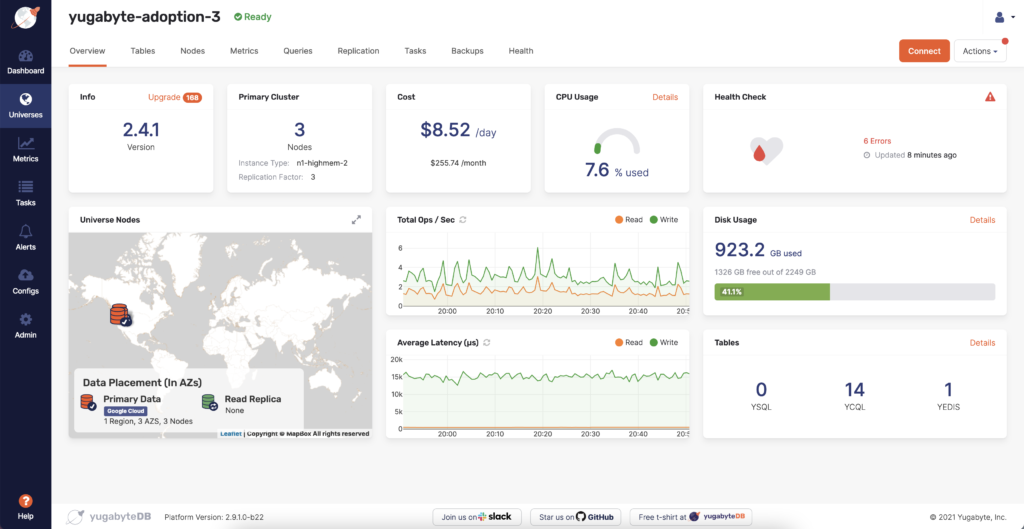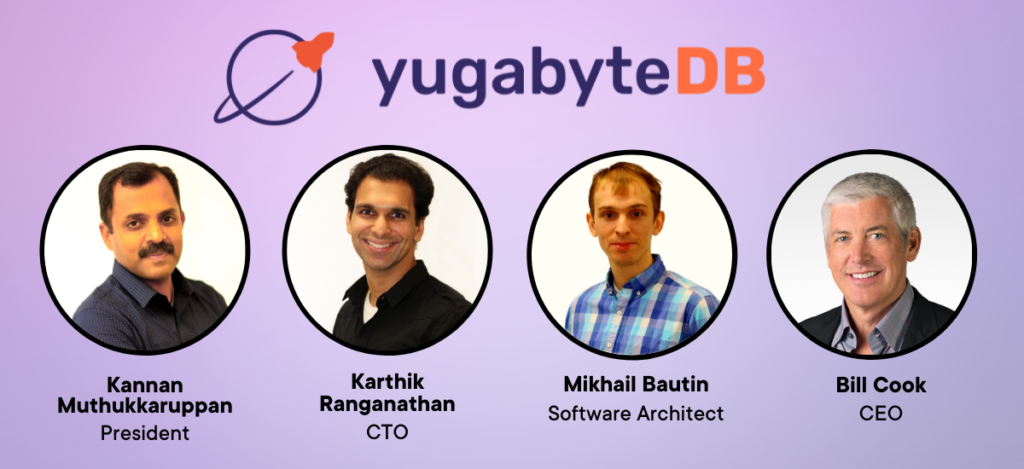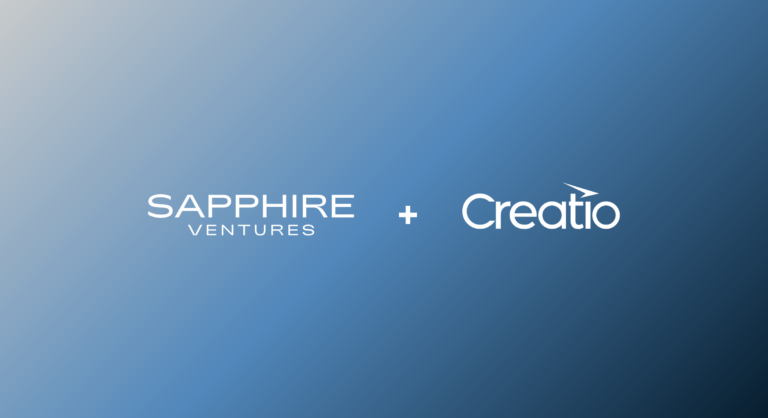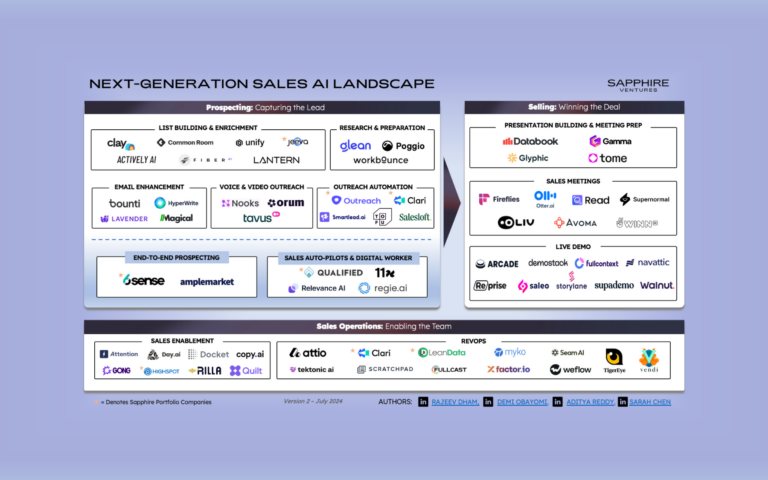Traditionally, companies have built applications with monolithic architectures that are large, on-prem and tightly coupled with non-horizontally scalable SQL databases. With the rise of containers and microservices, companies have started to develop cloud native applications, which are created in a modular framework of loosely coupled services that as a whole make up the application.
But while applications have de-coupled into services and moved to the cloud, application architects have continued to use monolithic SQL databases (albeit sometimes running on a large server in a public cloud), and have been trying to fit a round peg in a square hole. These architects have discovered the limitations of traditional SQL databases for cloud-born apps and are entirely rethinking their cloud database of choice. This has created a massive new opportunity for cloud native and microservice-friendly SQL databases.
That’s why we’re excited to partner with Yugabyte and lead the company’s $188 million Series C. YugabyteDB is a cloud native, open source, distributed SQL database serving the immediate market need for a high performance geo-distributed relational database that can run on any cloud or on-prem virtual or Kubernetes environment. Founded by the early engineers of the Apache Cassandra project who helped scale Facebook’s platforms from 30 million to 1.4 billion users, Yugabyte’s database is an exceptional technology with a founding team we are thrilled to back.
A Database Built for the Cloud’s Largest Applications

As more and more organizations rely on the cloud, they have found that legacy relational databases are behind on some of the most critical applications. As such, they are difficult to scale, inefficient and ultimately, ineffective. In other words, original SQL databases like Oracle, PostgreSQL and MySQL–while tried-and-true–are monolithic. Running cloud native applications on them requires significant overhead with unbearable latency.
Yugabyte provides companies a new, up-to-date approach with its distributed transactional SQL database. Its single logical database is deployed across multiple physical nodes (servers) with automatic data sharding and replication –all of which allow it to deliver elastic scale and high resilience. Distributed SQL databases, such as Yugabyte’s, actively manage data across multiple cloud providers as part of a cohesive application and data management strategy, relying on the foundation of multi-cloud capabilities, but adding the ability to access and use data across clouds in an operational context. YugabyteDB’s architecture enables high availability and horizontal scalability, working flawlessly with the heaviest and most mission critical workloads.
It’s no wonder that some of the largest corporations have chosen YugabyteDB for their most essential services. For example, a top retailer turned to Yugabye to help scale product mappings during peak retail season. Kroger leveraged YugabyteDB to build their next generation cloud native customer experience for their shopping cart, inventory and item pricing services And Xignite has been able to deliver financial data to more than 700 financial and fintech customers thanks to YugabyteDB.
On top of all of this, YugabyteDB is API compatible with both Apache Cassandra and PostgreSQL by reusing PostgreSQL’s query layer to achieve a high degree of compatibility with existing PostgreSQL applications or those that can be migrated to PostgreSQL. Given the high level of PostgreSQL developer mindshare, this means that developers can be productive immediately and experience zero friction as they transition to YugabyteDB.
Rockstar Founders with a Long Sapphire History

Yugabyte’s co-founders, Kannan Muthukkaruppan (President), Karthik Ranganathan (CTO), and Mikhail Bautin (Software Architect), are incredibly talented, and known database builders who met at Facebook in 2007. At Facebook, Muthukkaruppan and Ranganathan were early engineers on the Apache Cassandra project, and Ranganathan is credited for naming the open-source NoSQL database. Furthermore, the trio are creators and committers of Apache Cassandra and HBase. They also ran Facebook’s DBaaS at scale, achieving +1 trillion ops per day and 100 Petabytes. To add, they scaled data platforms at Facebook from 30 million to 1.4 billion users.
To help build GTM and scale commercial operations, Bill Cook, former Greenplum CEO and Pivotal President, joined Yugabyte as CEO in May 2020. He is a known and steady hand and has an extensive history with Sapphire from when we backed Greenplum prior to an acquisition by EMC. We are looking forward to once again partnering with Bill, and investing in such an experienced and capable management team.
A Two-Pronged GTM Approach in a Massive TAM Opportunity
IDC estimates that the aggregate database market was worth $49.3B in 2019 and will be worth $73.9B in 2024. Given the size of database budgets, the market is capable of generating tremendous outcomes including companies like MongoDB and Snowflake (a Sapphire investment at IPO).
Not only is Yugabyte executing well against its top-down GTM approach (selling to F500 companies), but it is also building a bottom-up developer-focused approach with their recently announced Yugabyte Cloud. Yugabyte Cloud promises to unlock the power of “any”–allowing organizations to run any app in the cloud at any scale, anywhere and accessible at any time. This fully managed offering delivers the power of distributed SQL with the ease of use of a cloud database service, enabling developers to create and connect to an infinitely scalable, resilient Postgres and Cassandra compatible database in minutes with zero operational overhead. Yugabyte Cloud allows the company to capitalize on its strong open source momentum with over 4.3K Slack users, 5.5k GitHub stars and 220 contributors.
We think that Yugabyte’s open source roots combined with their world class enterprise GTM chops create a compelling investment opportunity.
Over the years, Sapphire has invested in enduring data-focused companies like MySQL (Oracle), Greenplum (Pivotal), Alteryx, Looker (Google), Sumo Logic (NASDAQ: SUMO), and Segment (Twilio), as well as current portfolio companies Dremio, Privacera, InfluxData, DataRobot, Matillion, Alation, and Thoughtspot. Yugabyte is the latest addition to this list as we hope to help build Yugabyte into a company of consequence.






